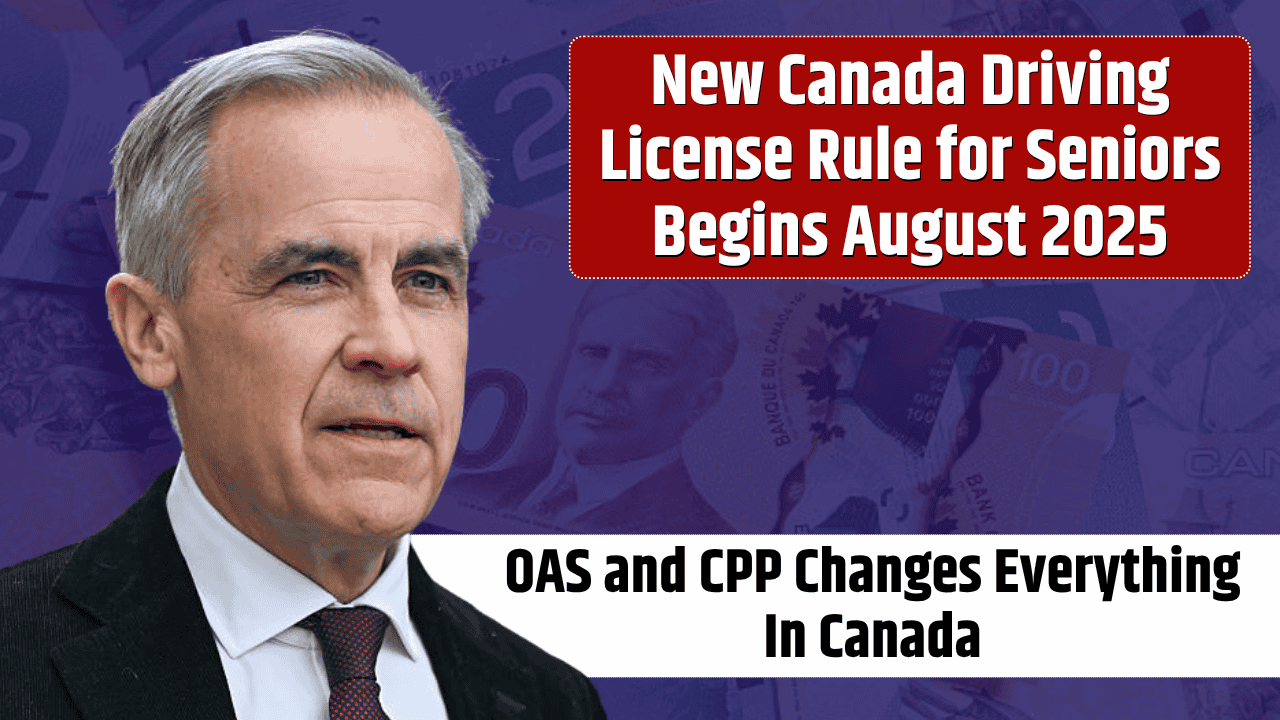Lately, you’ve probably seen a flood of headlines screaming about federal driving rules for Canadian seniors starting August 2025. Some sound downright apocalyptic—like all 70-year-olds are about to get their licenses ripped away overnight.
So, Who’s Actually Behind This?
Here’s the deal: driver licensing in Canada is handled by provinces and territories, not Ottawa. Always has been. There’s no sweeping federal law that tells Granny she can’t drive to Tim Hortons.
But—and this is the key part—all the provinces and territories are working together to standardize how they handle senior drivers. It’s less of a hammer-drop and more of a coordinated tune-up.
The target date? August 2025. Not July. Not some vague “sometime soon.” That’s when most regions are expected to roll out new guidelines.
What’s Actually Changing?
Okay, let’s talk nuts and bolts. The changes will focus on drivers aged 70 and up, and while each province is setting its own pace, the core updates are expected to include:
| Change | What it Means |
|---|---|
| Medical Exams at 70+ | Seniors may need to pass a routine checkup to renew their license |
| Cognitive Testing (in some cases) | If there are signs of memory or reaction-time issues |
| Refresher Courses | Not everywhere, but some provinces may ask for a short driving course |
| License Restrictions | Like “no night driving” instead of revoking a license entirely |
So, no—70 doesn’t mean an automatic fail. But it is a checkpoint.
Why Now?
Simple answer: demographics. Canada’s senior population is booming. As of this writing, more than 5 million Canadians are over 65, and a big chunk of them still drive.
Most are solid, cautious drivers. But aging brings changes. Slower reflexes. Trouble seeing at night. Memory slips. These updates aren’t about punishing people—they’re about catching red flags before they become tragedies.
It’s about balance: protecting public safety without killing seniors’ independence.
Who Decides If You Can Keep Driving?
Short answer? Your doctor.
Longer answer? Your doctor will assess you during a routine medical exam and look for things like:
- Vision problems
- Medication side effects
- Cognitive red flags (e.g., memory or judgment issues)
- Neurological conditions like early dementia or Parkinson’s
If something concerning shows up, you might be sent for a more thorough driving assessment. But again—it’s not “lose your license or else.” It’s about tailoring decisions. Some folks may just get a restricted license—like driving only during daylight hours, or no highway trips.
What About Cost? That’s a Big One.
Let’s be honest—medical exams aren’t cheap. Especially if you need multiple tests or a cognitive assessment.
And while some provinces might cover those costs (or part of them) under public healthcare, others may not. If you’re a senior living on a fixed income, that’s no small detail.
There’s real concern here—and real frustration.
Is This Even Fair?
That’s the million-dollar question. Some seniors (and their families) are saying, “Hold on—this feels like age discrimination.”
They’re not wrong to ask. The Canadian Human Rights Act prohibits discrimination based on age or disability, unless there’s a solid reason for it. Governments argue that public safety is that reason.
Still, expect this to be a hot-button issue in 2025. Especially if provinces aren’t consistent with how they implement the rules—or if the rules hit lower-income seniors harder.
No official legal challenges yet, but the conversations are getting louder.
Will Seniors Be Left Stranded?
Hopefully not. Officials aren’t blind to the fact that taking away someone’s license—especially in rural areas—is a big, big deal.
That’s why provinces are (thankfully) working on alternatives to keep seniors moving:
- Expanded public transit options
- Subsidized rideshare services for seniors
- Community shuttle programs (especially in smaller towns)
But let’s be real: the roll-out of these support systems is going to vary a lot by region. Some places are way ahead. Others? Still figuring it out.
How to Get Ready (Even If You’re Only 68)
If you’re creeping up on 70—or you have parents in that zone—there are things you can do now:
- Get a full eye exam (not just reading glasses checkups)
- Review medications with your doctor for side effects that impact alertness
- Consider a voluntary refresher course through your local driving school
- Practice driving in challenging conditions (rain, night, city traffic)
Think of it like training for a marathon—do the prep now, and you’ll be ready when the new rules land.
Let’s Set the Record Straight
Despite all the buzz, there is no national law kicking in this August. But provinces are syncing up their standards, and that means many older drivers will start to notice new rules soon after their 70th birthday.
The goal isn’t to punish seniors. It’s to protect everyone on the road—while doing everything possible to preserve independence, mobility, and dignity.
FAQs
Are these new rules federal?
Nope. All licensing in Canada is provincial. But the provinces are moving in the same direction.
Will the rules be the same everywhere?
Not exactly. Core elements (like medical checks) will be similar, but implementation varies.
Is 70 the cut-off age for driving?
No. It’s a trigger for evaluation—not automatic disqualification.
Will provinces pay for the medical exams?
It depends. Some might offer full or partial coverage. Others may not.
Could these rules violate human rights?
Some critics think so, but no formal court decisions have said that yet.










